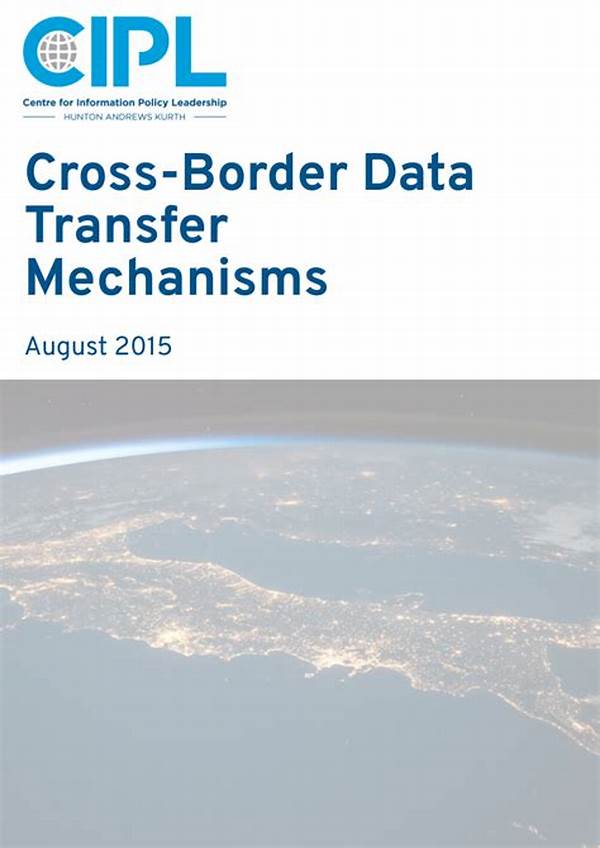In an increasingly interconnected world, the importance of cross-border intelligence sharing mechanisms cannot be overstated. The complexities and challenges of global security require nations to collaborate and communicate efficiently. These mechanisms serve as pivotal tools in the fight against transnational crimes, terrorism, and cybersecurity threats. This article delves into the intricacies of such mechanisms, exploring their structure, benefits, and challenges faced in their implementation.
Importance of Cross-Border Intelligence Sharing
Cross-border intelligence sharing mechanisms are vital in establishing a secure international environment. They enable countries to share crucial information promptly, which aids in preempting and effectively responding to potential threats. In an era where cyber threats and terrorism are not confined by geographical boundaries, these mechanisms play a significant role in maintaining global security. Furthermore, intelligence sharing fosters diplomatic relationships, as countries work in unison to combat common adversaries. It ensures that nations are not isolated in their security operations, thereby enhancing mutual trust and cooperation. However, a balance must be achieved between the need for security and the protection of individual privacy rights, as these mechanisms often involve handling sensitive personal data. Thus, international standards and agreements are crucial to managing these complexities.
Challenges in Implementing Mechanisms
1. Data Privacy Concerns
The implementation of cross-border intelligence sharing mechanisms often raises data privacy concerns. Balancing security objectives with the protection of individual rights remains a critical challenge.
2. Standardization of Processes
Establishing standardized procedures for information exchange can be daunting. Differences in legal systems and bureaucratic processes complicate the creation of uniform protocols.
3. Trust Among Nations
Trust is fundamental to efficient cross-border intelligence sharing mechanisms. Historical animosities and lingering suspicions can hinder the development of trust among nations.
4. Technological Disparities
The technological capabilities of countries vary significantly. Addressing these disparities is essential for effective intelligence sharing.
5. Resource Allocation
Implementing and maintaining cross-border intelligence sharing mechanisms require considerable resources. Some nations may struggle with the financial and human resource demands involved.
Existing Frameworks and Agreements
Several frameworks and agreements underpin cross-border intelligence sharing mechanisms. These include bilateral and multilateral treaties aimed at fostering collaboration among nations. The Five Eyes alliance, for example, consists of five nations committed to sharing intelligence for mutual security benefits. Similarly, Interpol and Europol facilitate law enforcement cooperation on a global and regional scale, respectively. These organizations help in standardizing practices and ensuring adherence to international laws and norms. Furthermore, such frameworks promote transparency and accountability, which are essential for building trust. Participating countries must remain committed to these arrangements, ensuring they adapt to evolving security challenges and technological advancements. The efficacy of these frameworks hinges on the dedication and goodwill of the involved parties.
Strategies for Enhanced Cooperation
1. Strengthening Diplomatic Relations
Promoting diplomatic efforts can lead to stronger cross-border intelligence sharing mechanisms. Diplomatic channels facilitate smoother communication and cooperation.
2. Investing in Technology
Advanced technological tools are pivotal in maximizing the potential of these mechanisms. Nations should invest in technology to bridge existing capabilities gaps.
3. Regular Training and Workshops
Conducting regular training programs enhances the skills of personnel involved in intelligence sharing, ensuring adept handling of shared information.
4. Legal Reforms
Revising and harmonizing existing laws is imperative for the seamless exchange of intelligence. Legal frameworks must be adaptable to emerging security scenarios.
5. Public Awareness Initiatives
Educating the public about the importance of cross-border intelligence sharing mechanisms can alleviate concerns regarding privacy infringements.
6. Multilateral Engagement
Engaging multiple stakeholders, including international and regional organizations, encourages more comprehensive intelligence sharing.
7. Joint Research and Development
Collaborating on research initiatives enables countries to develop new techniques and technologies for intelligence gathering and analysis.
8. Cybersecurity Strengthening
Enhancing cybersecurity measures protects the integrity of shared intelligence, ensuring information is safe from malicious entities.
9. Cultural Understanding Programs
Fostering cultural understanding and tolerance among nations can improve cooperation and reduce biases impacting intelligence sharing.
10. Institutional Capacity Building
Developing robust institutions with the capability to handle cross-border intelligence sharing mechanisms is vital for long-term sustainability.
The Role of Technology in Intelligence Sharing
Technology plays an indispensable role in cross-border intelligence sharing mechanisms. Modern tools and platforms allow for the efficient exchange, analysis, and interpretation of vast amounts of data. Artificial intelligence (AI) and machine learning offer the potential to identify patterns and anomalies within datasets, providing valuable insights that might otherwise remain hidden. These technologies not only enhance the accuracy of shared intelligence but also speed up decision-making processes. Countries are encouraged to innovate continually and adopt new tools to remain relevant in the ever-evolving landscape of global security. Moreover, ensuring cybersecurity is paramount, as the risks associated with data breaches and unauthorized access can severely compromise the integrity of shared intelligence. Collaboration between the public and private sectors can further drive technological advancements, ensuring these mechanisms remain robust and effective.
Future Prospects and Considerations
Looking forward, cross-border intelligence sharing mechanisms are poised to become increasingly sophisticated and integral to international security strategies. However, this evolution will not be without challenges. Ensuring comprehensive legal and ethical frameworks to manage information sharing while respecting sovereignty rights will be paramount. Furthermore, as technology continues to advance, countries must keep pace with these changes to enhance and secure their intelligence-sharing capabilities. The ongoing development of AI and big data analytics presents new opportunities for intelligence sharing, transforming how information is processed and utilized. Addressing these considerations within the global security agenda will require continued dialogue, cooperation, and innovation among states and other stakeholders.
Conclusion
In conclusion, cross-border intelligence sharing mechanisms are critical in safeguarding global security. These mechanisms enable countries to combat transnational threats collaboratively, enhancing collective safety. However, their effectiveness hinges on overcoming challenges such as data privacy concerns, technological disparities, and trust issues. Future developments in technology and international cooperation strategies offer promising avenues for strengthening these mechanisms. As the international community navigates these complexities, commitment to transparent and accountable practices remains essential for the sustained success of cross-border intelligence initiatives. By prioritizing trust and cooperation, nations can effectively deploy these mechanisms to address the evolving landscape of global security threats.





